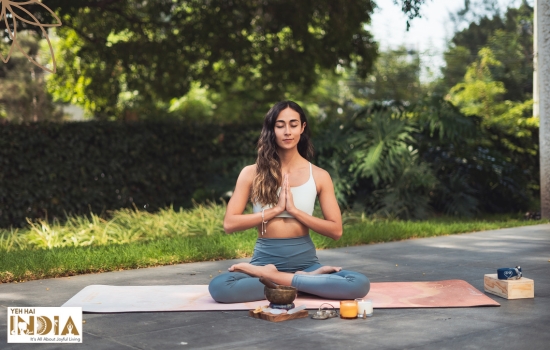There are various alternative medicinal practices in India that work in parallel with modern medicine to create a better health for the public.
Even though many people do not believe in traditional medicine, scientific research conducted through several years has concluded that traditional medicine does have an important role in maintaining the health and wellbeing of an individual.
Though there is not enough evidence that these medicines work in serious cases but they do help people in preventing many diseases and improving chronic conditions.
The practice of traditional and alternative medicine usually doesn’t only rely on medicines but rather motivates people to practice an altered lifestyle and diet which is one of the main reasons why this kind of therapy proves to be effective for many people. It is also a fact that many life saving modern drugs are directly extracted from natural sources like herbs.
Recommended Story – Ayurveda and Its Rising Popularity Around the World
Many doctors believe that traditional medicine should be a focus for modern research as more drugs or cures to serious diseases may be hidden in the wonders of nature.
All the alternative medicinal practices in India are regulated by the Ministry of Ayush. They usually licence the medicines used by the doctors.
So, let’s take a look at the alternative medicinal practices in India that are recognized by the Government.
1.Homeopathy
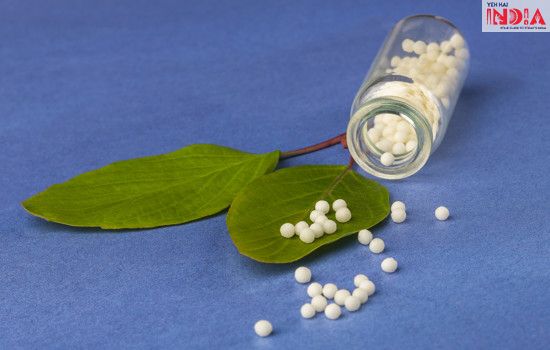
It is an alternate medicinal system in India and is also practiced worldwide. It was founded by Dr. Samuel Hahnemann in the 1700.
The first Homeopathy Medical School was founded in the United States in the 1800. Soon after that, it became popular as it allegedly treated many epidemics like typhoid, cholera and scarlet fever. Dr. John Martin was a French traveller who was a student of Dr. Samuel and he brought homeopathy to India in 1810.
He treated the Maharaja of Punjab, Ranjeet Singh and popularized the practice in the country. The Indian government had recognised homeopathy as a national medicinal system in 1973.
Today, homeopathy has become one of the most common medicine systems in India. There are many colleges which provide a full graduation course in homeopathy and usually it is controlled by the Ministry of Ayush.
According to a study in 2007, around 10% of the Indian population depends solely on homeopathy for healthcare. It is based on the doctrine “like cures like”.
The medicines of homeopathy are called remedies. Usually, these medicines act as a placebo for a person taking it while more importance is placed on strengthening the patient’s natural immunity.
Minute quantities of certain substances from natural sources like plants and minerals are diluted to make these medicines. It is believed that these medicines trigger the natural immunity system of the person and help to fight the disease.
2. Ayurveda
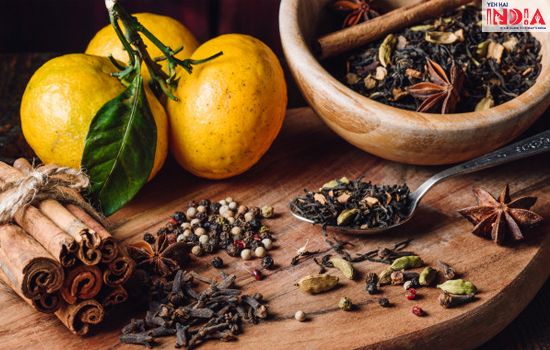
The Sanskrit word ayurveda means the signs of life.
It is one of the most ancient systems of medicine in the world which dates back to around 5000 years. The practice of this medicinal system rises from the ancient Vedic culture and its knowledge has been passed on from generation to generation through oral tradition.
Earlier many people thought of ayurveda as a pseudoscientific and useless practice but today modern science has proved that ayurveda can be a great way to prevent diseases by encouraging healthy lifestyle and diet.Many of the remedies to modern health problems are found in traditional herbal medicines that are used in Ayurveda.
According to Ayurveda, there are different energies that are present in the body, mainly three types: vata, pitta and kapha. These energies can be related to the modern concept of movement, metabolism and structure respectively. When an imbalance happens in the energies, it results in a disease.
So, Ayurveda is all about maintaining a balance in the energy through the help of a good lifestyle and using herbal remedies when such energy imbalances take place.
Ayurveda promotes the use of yoga and meditation to maintain good physical and mental health and also the intake of a nutritious diet with mindfulness. These concepts are in sync with modern science and that’s why Ayurveda has gained a lot of popularity in the west.
Recommended Story – Indian Spices to Boost your Immunity during Pandemic
3. Naturopathy
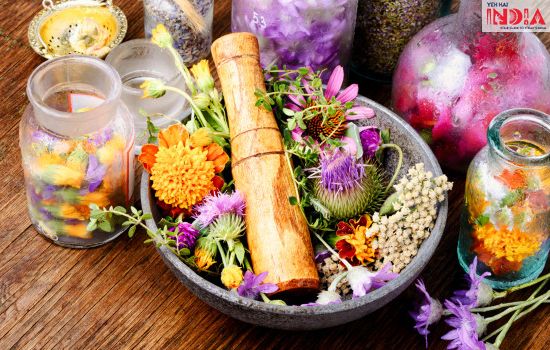
This system of medicine is based on some of the ancient traditional practices that are mentioned in our Vedas. This practice, however, was brought into the modern world by a book called, “New Science of Healing” by Louis Kuhne, which was translated by Shri Venkat Chelapati Sharma in 1894. It was translated in Hindi and Urdu in 1904. Gandhiji was one of the ardent believers in the healing system of Naturopathy.
A Naturopath believes that the cure for all diseases is present in nature. Though this system is not mainstream, it is gaining popularity nowadays even in the Western world. There are many universities which provide courses in Naturopathy.
It promotes the strengthening of the body’s immunity with the help of natural therapies and not any remedies or medicines. Some of the therapies commonly used in naturopathy include nutrition, acupuncture, herbs, hydrotherapy, fasting, exercise, etc. It is quite similar to Ayurveda except that it also includes some different therapies from other systems which are not included in Ayurveda.
4. Unani
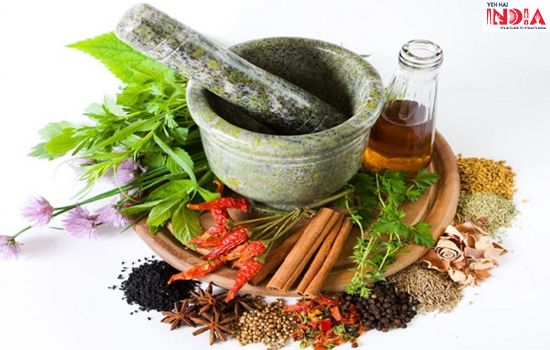
Unani is practiced in the middle East and South Asian countries of Graeco-Arabic origin. It was founded about 2500 years ago. It provides some of the important values and principles that help form the modern medicine system. The medicine is 90% herbal, 5% animal and 5% mineral in composition.
This medicine system usually recommends a treatment pattern to the patient depending on the individual lifestyle, diet and stress that they encounter on a regular basis.
Some of the important therapies used in the Unani system include cosmoseutics, nutraceutics and aromatics. There are several “electives organ specific” tonics and immune modulator related drugs used in the treatment of several diseases. The drugs in Unani are classified depending on their potency into first, second, third and fourth degree.
Though this system is now becoming less common, it still has some fervid followers who seek it from time to time.
5. Siddha
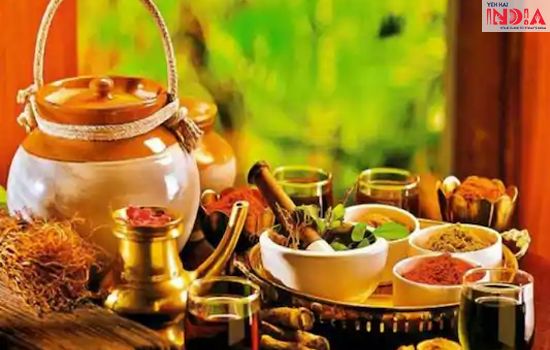
This is one of the ancient medical systems in India. It is said that eighteen siddhas or saints together developed this system of medicine.
Today, it is practised mainly in the Indian state of Tamil Nadu and the texts of the Siddha system are also in Tamil language. This system applies a philosophical concept to explain the biology of the human body.
According to the Siddha system, the human body and the universe are similar and like Ayurveda, it also believes that our body is composed of five elements: air, earth, water, fire and sky.
It is believed that food is the building material of the body and it gets processed into humours, tissues and waste. The humours keep the body in equilibrium and when this equilibrium is disturbed due to some reason, it causes diseases.
The siddha system is more like a lifestyle that leads a person to salvation through the help of medicines and meditation.
Today, many forms of traditional medicine from India are famous all over the world and an increasing number of people are taking an interest in alternative medicines. It is important to emphasize that alternative medicine is not a substitute for western medicine in case of a serious disease.
The practice of alternative medicine should always be focused on prevention rather than cure. Alternative medicine practitioners face a lot of criticism from modern medicine practitioners and many forms of traditional medicine are now dissipating into non-existence.
It is necessary for us to give traditional medicine practitioners their due respect and use the traditional knowledge for modern scientific research, owing to its potency of finding new remedies that may still be unknown to the world.
Recommended Story – Ayurveda-An Overview








